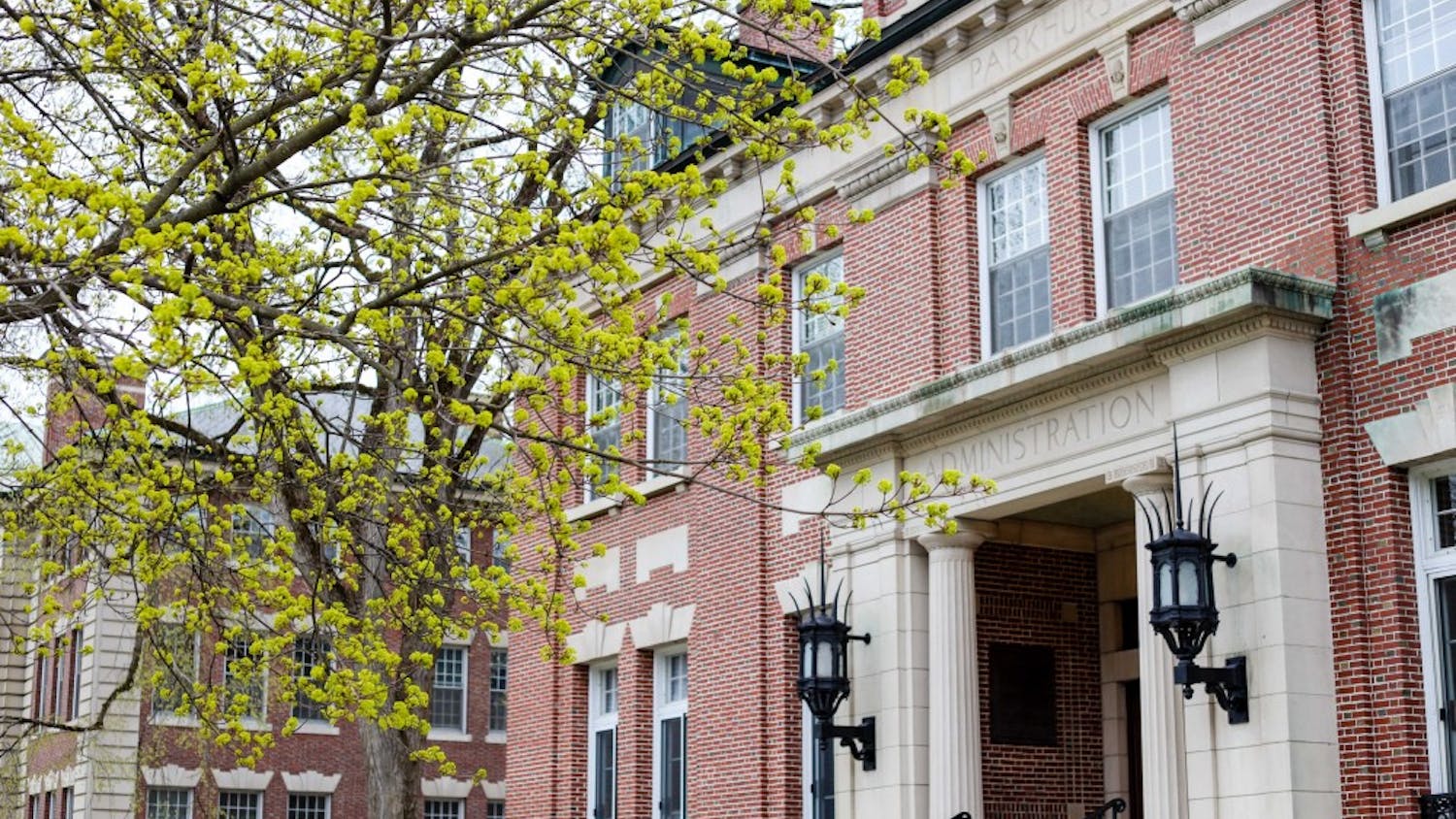Updated: July 26, 2019 at 4:43 p.m.
Mediation between the College and the nine plaintiffs in the ongoing class-action lawsuit against the administration began on Wednesday, College spokesperson Diana Lawrence confirmed over email. The out-of-court discussions follow a joint motion filed by the two parties last month, which called for the legal proceedings to be temporarily suspended in order to “resolve this matter without further litigation.”
The transition to mediation comes as the latest development in a $70 million lawsuit originally filed against the College by seven female alumni on Nov. 15, 2018. The plaintiffs alleged that as a consequence of the College’s deliberate negligence, three professors in the psychology and brain sciences department were permitted to sexually harass and abuse female students for over 16 years. On May 1, two new anonymous plaintiffs raised further allegations against Dartmouth, prompting the College to file a motion arguing that the use of pseudonyms would hinder the administration’s capacity to defend itself, claiming that it hinders Dartmouth’s investigation of the claims and prevents adequate evaluation of whether the new plaintiffs can serve as representatives of the class.
The joint motion filed last month requested for all litigation to be delayed until July 31, or until three days after the mediation, depending on which date came first.
According to Title IX and education defense lawyer Mark Hathaway, the filing of a joint motion indicates that both parties have found it in their best interest to settle outside of court rather than pursue a trial, at least for the time being.
The process of mediation will call for the two parties to engage in out-of-court talks facilitated by a mutually approved third-party mediator, with the intention of reaching a settlement without going to trial, according to the joint motion. For their mediator, the parties have selected retired judge Robert Morrill, who served on the New Hampshire Superior Court for 21 years and now works as a professional mediator based in Portsmouth, NH.
Anderson said that the College would prefer to reach a resolution to the case outside of court through mediation, expressing reservations over the “adversarial structure” of the formal litigation process.
“We’re going into this very optimistically because we think that the mediation process, as opposed to the litigation process, is one that will be much more productive,” Anderson said.
At the same time, Anderson noted that the litigation process could resume if the mediation does not lead to a settlement that both parties find satisfactory. He added that the end date of the mediation process will be determined based on Morrill’s assessment of the progress made within the talks.
“Mediation takes time, and we may not reach an agreement during the first session,” Anderson said. “Nevertheless, we believe that the best thing for both the [plaintiffs] and for Dartmouth is to reach a resolution outside of the litigation process.”
According to Criminal defense attorney Mark Werksman, a typical mediation should be expected to last for the duration of one full day, although some cases take significantly longer or shorter than that.
Werksman emphasized that mediation and settling out of court are common protocol for cases of this nature — as with all cases — since holding a trial is an expensive process and does not offer the same level of privacy.
“From the university’s point of view, I would think they would be dying to mediate,” Werksman said. “They want to avoid the embarrassment of a trial where dozens of plaintiffs and witnesses are going to speak out against their faculty.”
Hathaway said that he would expect a settlement for a case of this nature to involve a financial reward from the College, as well as a change in sexual misconduct policies going forward.
Founding member of the Dartmouth Community Against Gender Harassment and Sexual Violence Diana Whitney ’95 expressed hope that a settlement out of court, as opposed to a trial, will not diminish the momentum generated by the lawsuit to advocate for victims of sexual violence.
“From the very beginning, when the lawsuit was first filed in November, what we wanted to see from Dartmouth’s leadership was a public apology and accountability,” Whitney said. “So I really hope the process of mediation and potential settlements doesn’t mean we won’t get to see those things.”
She added that she believes the lawsuit has already made a significant impact on the Dartmouth community by providing an opportunity for alumni, students and professors to discuss the issue of gender-based violence and harassment on campus.
“I don’t feel like people are just going to go back to complacency,” Whitney said. “There are going to be people watching now to make sure nothing like this happens again. The goal of ending gender violence and sexual harassment at Dartmouth — even if the case ends out of court, that goal doesn’t change.”
The plaintiffs’ legal team declined to comment for this story.
Elizabeth Janowski '21 is the news executive editor of the 177th directorate. Hailing from Brookfield, Wisconsin, she is pursuing a double major in history and film and media studies.


